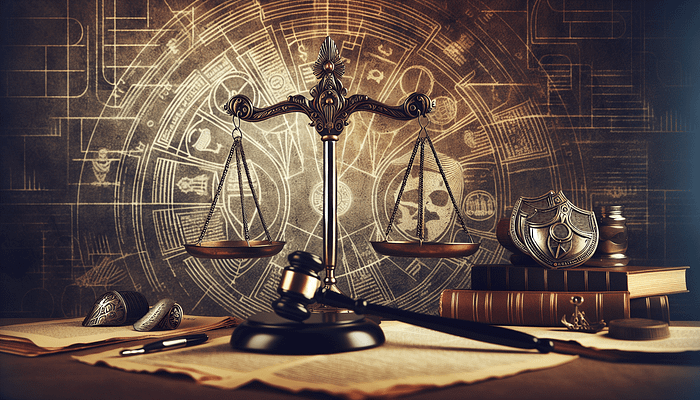What Are The Most Common Defenses To A Criminal Charge?
Explore common defenses to criminal charges in Utah, from self-defense to duress, and understand how they impact your case. Equip yourself with essential legal knowledge.
What Are The Most Common Defenses To A Criminal Charge?
Introduction
Being charged with a criminal offense can be an overwhelming experience. Understanding your rights and the potential defenses available to you is essential for navigating this challenging terrain effectively. This article explores the most common defenses to criminal charges under Utah law, aiming to throw light on their importance and practical applications.
Understanding Criminal Charges in Utah
In Utah, criminal charges can range from misdemeanors to felonies. The severity of the charges will determine the potential penalties, which can include fines, community service, probation, or even jail time. The Utah Code provides detailed statutes governing criminal law. By exploring these defenses, you could equip yourself with the necessary knowledge to engage more effectively with your legal counsel.

Valid Defenses to Criminal Charges
1. Innocence
One of the most straightforward defenses to a criminal charge is asserting that you did not commit the crime. This defense, however, requires convincing evidence. The burden of proof lies with the prosecution to prove beyond a reasonable doubt that you committed the crime. Real-life examples may include alibi witnesses or video evidence that places you elsewhere at the time of the crime.
2. Alibi
An alibi defense involves proving that you were somewhere else when the crime occurred, making it impossible for you to have committed the offense. This can be substantiated through witnesses, surveillance footage, or receipts that prove your location during the crime.
3. Self-Defense
In Utah, you are permitted to use reasonable force to protect yourself from harm. Under Utah Code §76–2–402, self-defense is a valid defense if you can demonstrate that you believed physical force was necessary to avoid imminent injury or death. For instance, if you were attacked while walking in Salt Lake City and defended yourself, proving you acted in self-defense could absolve you from criminal liability.
4. Defense of Others
Similar to self-defense, you can also defend others against harm. According to §76–2–402, this defense requires showing that you had a reasonable belief that immediate force was necessary to protect another individual from harm.
5. Defense of Property
You may use reasonable force to protect your property from being damaged or stolen, especially when unlawful entry is involved. However, using deadly force in such situations is heavily regulated under Utah law. The key here is proportionality; reasonable force must match the threat level.
6. Mistake of Fact
Mistake of fact can be a valid defense if it negates the intent element of a crime. For example, if you accidentally took someone else’s belongings believing they were yours, you might not be found guilty of theft as you lacked the criminal intent.
7. Duress
Duress involves committing a crime because you were coerced or threatened with immediate harm. Under Utah law, for this defense to be valid, the threat must be of significant harm and immediate. For instance, being forced to rob a store in Weber County because someone threatened your life could be a basis for a duress defense.
Procedural Defenses
8. Entrapment
Entrapment occurs when law enforcement officials induce someone to commit a crime they would not have otherwise committed. This defense is particularly nuanced, relying on demonstrating that the idea for the crime originated from law enforcement rather than the accused.
9. Illegal Search and Seizure
Under the Fourth Amendment of the U.S. Constitution, you are protected against unlawful searches and seizures. If evidence was obtained in violation of your constitutional rights, it could be excluded from trial under the exclusionary rule. In Utah, this is governed by case law interpretations and statutory provisions.
10. Violation of Miranda Rights
When taken into custody, you must be informed of your rights to remain silent and to an attorney as per the Miranda ruling. Failure to do so can render any subsequently obtained confessions or statements inadmissible in court.
Elements and Burden of Proof
Understanding the elements the prosecution must prove for a criminal charge is crucial in formulating an appropriate defense. In Utah, the burden of proof is always on the state to prove every element of the crime beyond a reasonable doubt. Utilizing defenses that challenge one or more elements of the prosecution’s case can significantly impact the outcome.
Practical Scenarios Illustrating Legal Defenses
Imagine you were charged with burglary in West Jordan. You could potentially use the following defenses based on the scenario provided:
- Alibi: Prove you were at a family gathering with multiple witnesses and photo evidence, thereby proves you couldn’t have committed the burglary.
- Mistake of Fact: If you were accused of burglary after accessing a property you genuinely believed you had permission to enter, this misconception might serve as your defense.
West Jordan Lawyer Jeremy Eveland
If you find yourself needing expert legal advice or representation, consider consulting West Jordan Lawyer Jeremy Eveland. His experience in criminal defense in Utah can provide valuable guidance tailored to your case.

Common Misconceptions
Misconception 1: You Don’t Need a Lawyer for Minor Charges
Even minor charges can have significant long-term consequences, including impacting employment opportunities and civil rights. Consulting an attorney ensures you understand the full ramifications and can effectively mitigate potential penalties.
Misconception 2: Admitting Guilt is the Easiest Way Out
Admitting guilt without exploring possible defenses can lead to severe penalties. Even if you believe the evidence against you is strong, a skilled attorney might identify procedural errors or mitigating circumstances that could reduce your charges or penalties.
Misconception 3: The Legal System Favors the Individual
While the legal system is designed to protect rights, navigating it without proper knowledge or representation can be daunting. Prosecutors and law enforcement have resources and expertise that can be challenging to counter without legal aid.
Practical Applications and Tips
Understanding these defenses not only aids in protecting your rights but also empowers you in making informed decisions. Whether you’re facing a misdemeanor or a serious felony, considering potential defenses forms a critical part of your legal strategy.
- Document Everything: Maintain detailed records of any interaction or incident related to the charges.
- Seek Legal Counsel Promptly: Early legal advice can prevent missteps and improve your chances of a favorable outcome.
- Understand the Charges Fully: Comprehending the exact nature of the charges against you aids in mounting a strong defense.
- Prepare Evidence: Collect any documentation, witness statements, and other evidence that support your defense.
Conclusion
Understanding the most common defenses to a criminal charge instills a sense of confidence and preparedness. While navigating the legal system can be complex and challenging, being informed about your rights and legal defenses allows you to effectively collaborate with your attorney to seek the best possible outcome.
Four Frequently Asked Questions
- What should I do if I am arrested?
- Remain calm, exercise your right to remain silent, and request an attorney immediately.
- Can I claim self-defense if I used a weapon?
- It depends on the situation and the level of threat you believed you were facing. The use of deadly force is highly regulated under Utah law.
- What does the Burden of Proof mean?
- The burden of proof is the prosecution’s responsibility to prove every element of the crime beyond a reasonable doubt.
- How soon should I contact an attorney if charged?
- It’s advisable to contact an attorney as soon as possible. Early legal intervention can significantly impact the case’s trajectory.
To speak with a criminal defense attorney, call Jeremy Eveland Utah Lawyer at (801) 613–1472.
If you found this article useful, please clap, leave a comment, and consider subscribing to our Medium newsletter for updates on similar topics. Jeremy Eveland 8833 S Redwood Rd West Jordan Utah 84088 (801) 613–1472
The information contained in this article is for information purposes only and is not legal advice. For legal advice, hire a competent lawyer in your jurisdiction.
